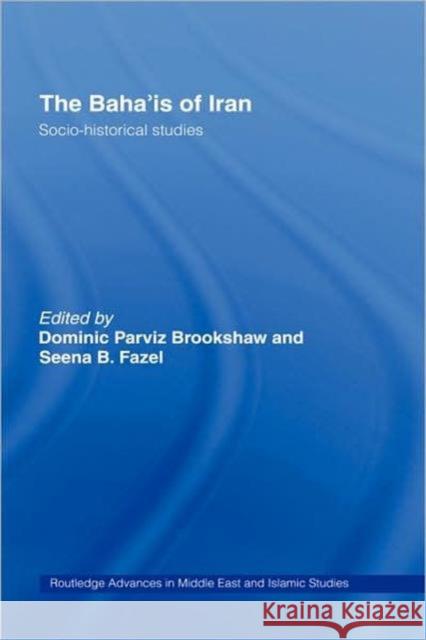The Baha'is of Iran: Socio-Historical Studies » książka
The Baha'is of Iran: Socio-Historical Studies
ISBN-13: 9780415356732 / Angielski / Twarda / 2007 / 304 str.
The Baha'is of Iran: Socio-Historical Studies
ISBN-13: 9780415356732 / Angielski / Twarda / 2007 / 304 str.
(netto: 764,94 VAT: 5%)
Najniższa cena z 30 dni: 730,42
ok. 16-18 dni roboczych.
Darmowa dostawa!
The Baha'i community of Iran is the country's largest non-Muslim religious minority. This collection of essays presents a comprehensive study of the social and historical development of the Baha'i community, and its role in shaping modern Iran. Central to this study is the pioneering character of the Baha'i community in the late 19th and early 20th century, with chapters examining the role of women in the Baha'i community; the impact of Baha'i-run schools on Iranian society, Baha'i contributions to public health initiatives; and the influence of Baha'i thought and the actions of individual Baha'is on the Constitutional Revolution of 1906-1911. Conversion to the Baha'i Faith is another important theme, as contributors investigate the phenomenon of large scale conversion to the Baha'i Faith from the Jewish and Zoroastrian communities. Finally, although persecution of the Baha'is has drawn the attention of the Western media, until now few scholars working in the field of Iranian studies have chosen to write on the history or details of this persecution. Here, five prominent figures in the field redress this balance and look at different aspects of this persecution, including its historical background, the attitude of secular Iranians, persecution before and after the Islamic Revolution of 1979, and human rights perspectives. This book will be of interest to students and scholars of Iranian studies, Middle Eastern studies and comparative religion, and with many chapters authored by leading academics in Iranian studies, The Baha'is of Iran addresses both a gap in academic literature on the Baha'i Faith, and in the study of modern Iran in general.
The Baha’i community of Iran is the country’s largest non-Muslim religious minority. This collection of essays presents a comprehensive study of the social and historical development of the Baha’i community, and its role in shaping modern Iran.
Central to this study is the pioneering character of the Baha’i community in the late 19th and early 20th century, with chapters examining the role of women in the Baha’i community; the impact of Baha’i-run schools on Iranian society, Baha’i contributions to public health initiatives; and the influence of Baha’i thought and the actions of individual Baha’is on the Constitutional Revolution of 1906-1911.
Conversion to the Baha’i Faith is another important theme, as contributors investigate the phenomenon of large scale conversion to the Baha’i Faith from the Jewish and Zoroastrian communities.
Finally, although persecution of the Baha’is has drawn the attention of the Western media, until now few scholars working in the field of Iranian studies have chosen to write on the history or details of this persecution. Here, five prominent figures in the field redress this balance and look at different aspects of this persecution, including its historical background, the attitude of secular Iranians, persecution before and after the Islamic Revolution of 1979, and human rights perspectives.
This book will be of interest to students and scholars of Iranian studies, Middle Eastern studies and comparative religion, and with many chapters authored by leading academics in Iranian studies, The Baha’is of Iran addresses both a gap in academic literature on the Baha’i Faith, and in the study of modern Iran in general.











